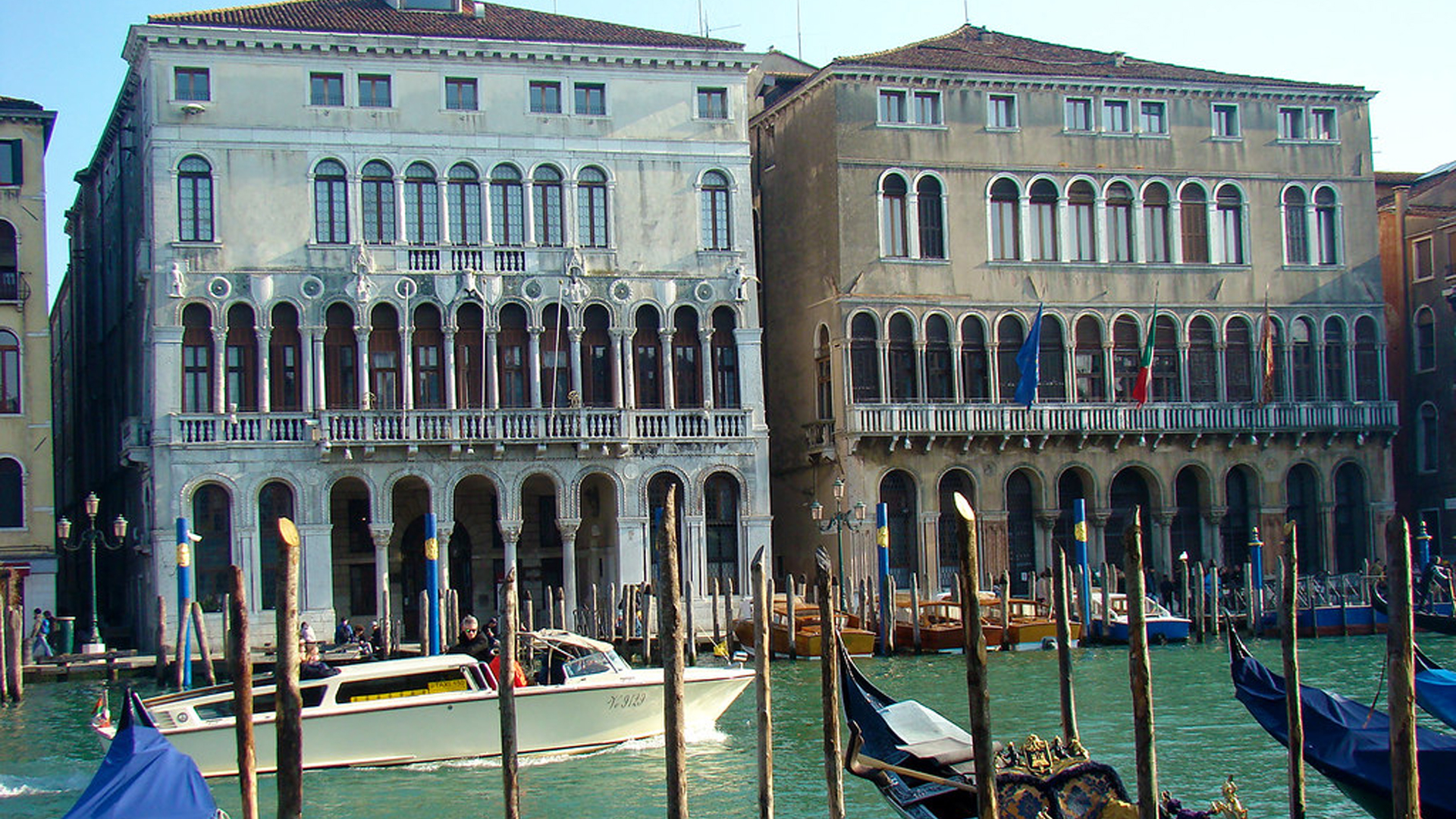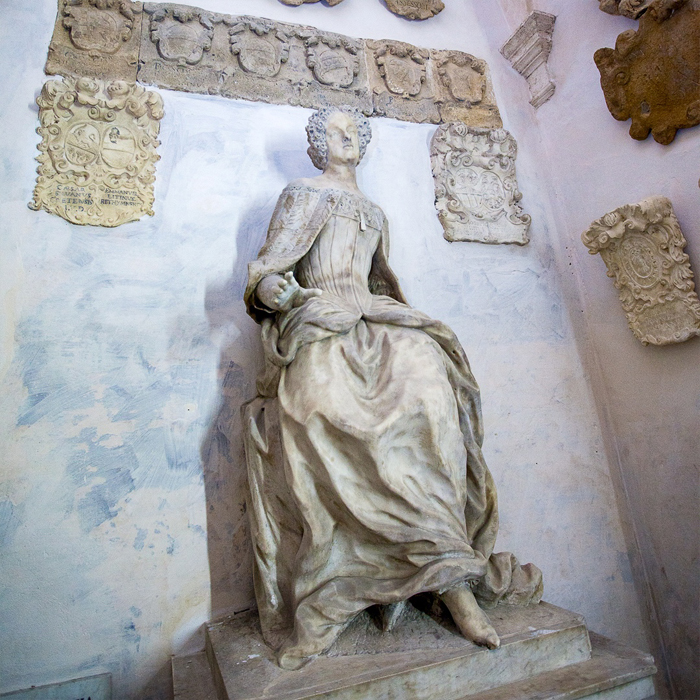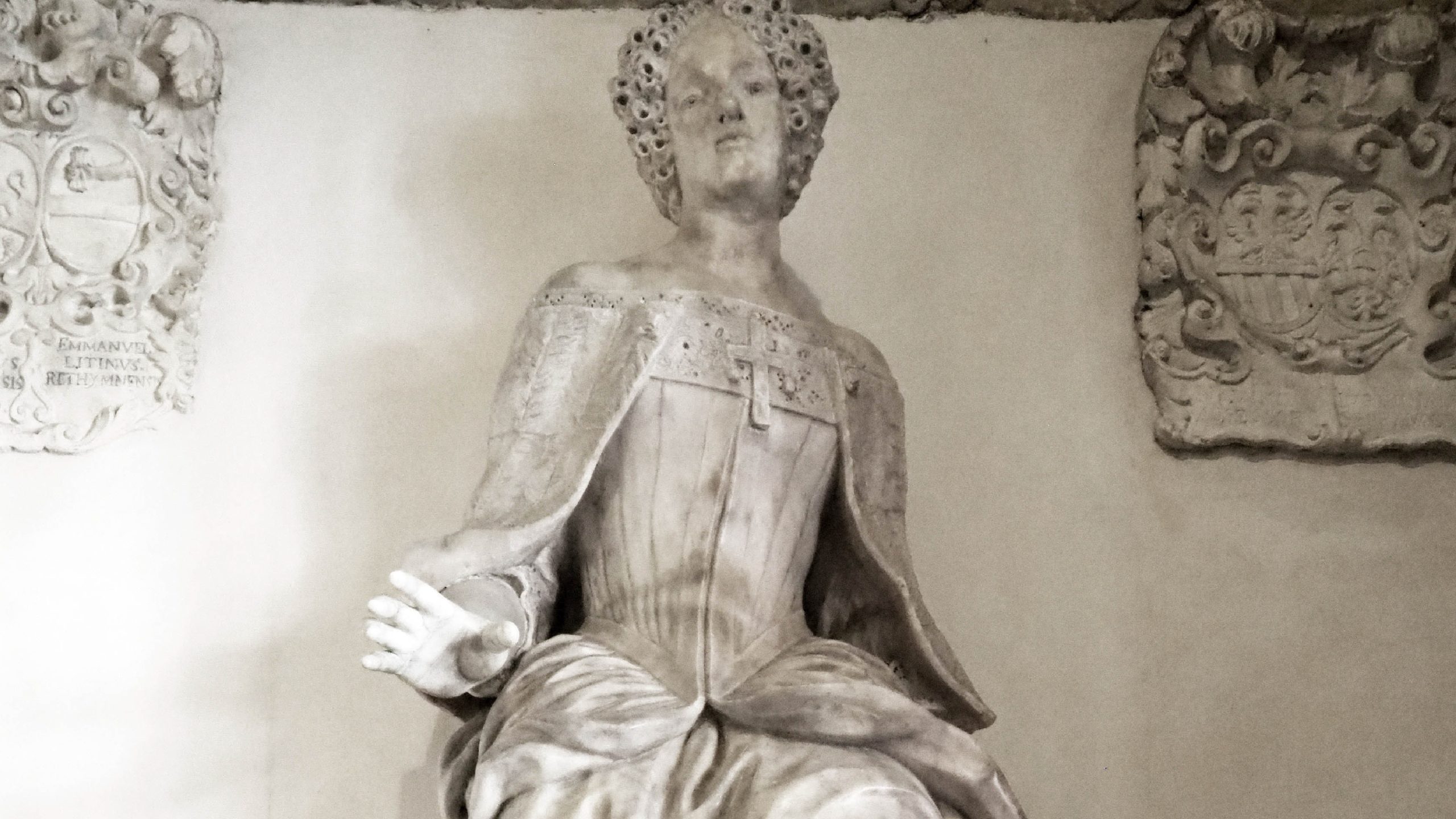Elena Lucrezia, born in Venice in 1646 at Cà Loredan Palace was a true pioneer. At age 32, in 1678—when a woman’s destiny was to marry or become a nun—she got her theology degree from the prestigious University of Padua, the second oldest university in the world, after Bologna. Many women before Elena had the chance to enter university, but the most reliable sources indicate that Elena was the first to receive a doctorate. Her story is one of a kind.
Elena’s father, Giovanni Battista Cornaro Piscopia, was a nobleman. His prominent ancestors included great-great-grandfather Alvise, a famous writer and patron; his grandfather Giacomo Alvise Cornaro, a scientist, friend of Galileo Galilei; his father Girolamo, a scholar of physics; and his uncle Marcantonio, who created an important library and collection of paintings and scientific instruments.

Elena Lucrezia’s mother, Zanetta Boni, was a peasant and not married to Giovanni at the time of Elena’s birth. When Elena was seven, priest Giovanni Fabris, a family friend, encouraged her father to let her study Greek and Latin. She later became fluent in French, Spanish, and Hebrew, and she also studied mathematics, astronomy, philosophy, music, and theology. As the fame of her intellectual accomplishments spread, she was invited to join several scholarly societies. In 1670 she became president of the Venetian Society Accademia dei Pacifici (Academy of the Peaceful).

In 1672, Felice Rotondi, Elena’s tutor in theology, petitioned the University of Padua to grant her the degree of doctor of theology. Gregorio Cardinal Barbarigo, the bishop of Padua, assumed that Cornaro was seeking a degree in philosophy and supported her wish. However, when he discovered that she sought a degree in theology, he refused to grant her the opportunity because she was a woman. He did allow her to pursue a doctor of philosophy degree, however. On June 25, 1678, due to the immense public interest in Cornaro, her doctoral defense was held in the cathedral of Padua rather than at the university. Her defense, which consisted of explaining two passages chosen at random from Aristotle, was successful, and she was presented with the traditional laurel wreath, ermine cape, gold ring, and book of philosophy, all the trappings of a magistra et doctrix in philosophia, philosophy teacher and doctor.

Cornaro became an oblate (lay monastic) in the Benedictine order in 1665, and after receiving her degree she divided her time between further studies and ministering to those in poverty. She was in poor health for much of her life, and her extensive charitable work, rigorous penances she performed, and extreme dedication to her studies took their toll on her weak physical condition. She died in 1684 at age 38. Today, Elena is still a luminary—in every sense. The Piscopia crater on Venus was named after her!
Barbara Benzoni
Barbara Benzoni was born in Milan and lives between Rome and Tuscany. She is devoted to USA, the land of courage and innovation. She’s Peter's super-lucky mum and Ale's wife. Cinema, art, good food and only beautiful things are the themes of her existence. With a degree in Italian literature and a Masters in Sports Management she can both enjoys books and basketball matches. In 25 years she has been organizing sport events all over the world and she’s been lucky enough to meet the greatest champs ever. Curiosity in everyday life and people are her drivers. Her personal icon is Mohammed Ali : "It's not bragging if you can back it up".


